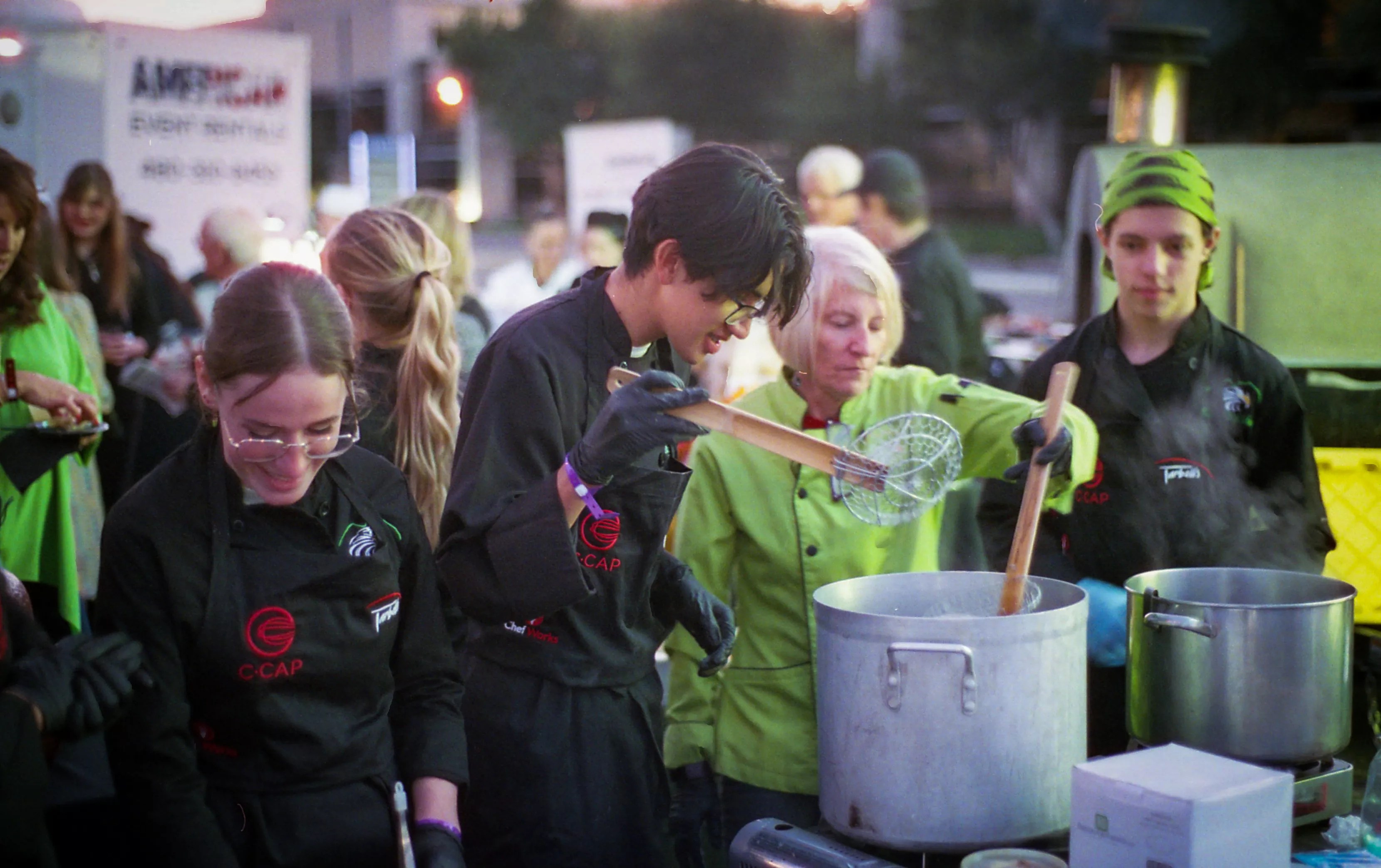
Scott Foust

Audio By Carbonatix
Esai Raya of Chandler had an interest in the culinary world since he was in sixth grade. Now, at 18, he’s an apprentice and line cook at Casino Arizona making a full salary and benefits, including tuition reimbursement. He also earned a $2,500 scholarship and plans to attend Scottsdale Community College and become a chef.
Raya credits the nonprofit Careers through Culinary Arts Program (C-CAP) for getting him on track to meet his goals.
“It’s really opened up doors that had I not done this, most likely would’ve stayed closed,” he says. “It’s shown me what I want to do.”
Founded in 1990, C-CAP has a broad mission of furthering food and social justice. It provides culinary and wellness education and workforce development to 20,000 students annually in seven regions across the U.S. About 70 schools throughout Arizona, including on the Navajo Nation, purchase the program for their elective culinary classes.
Amy Barko, the program coordinator for Arizona C-CAP, said the program has been implemented for 30 years in the state, providing curriculums and resources such as teacher training and online learning. Though it’s open to anyone, the true mission of C-CAP is to provide underserved teens a pathway to success. And that means more than teaching people their way around a kitchen. Students learn life skills in addition to knife skills.
“It isn’t just the cooking,” Barko says. “We take a look at the whole student.”
Barko estimates the other program they are most well known for is hosting cooking competitions for high school juniors and seniors. One hundred students statewide compete for 25 scholarships ranging from $1,000 towards a college savings fund “all the way up to a full-tuition scholarship to the top culinary schools,” according to Barko.
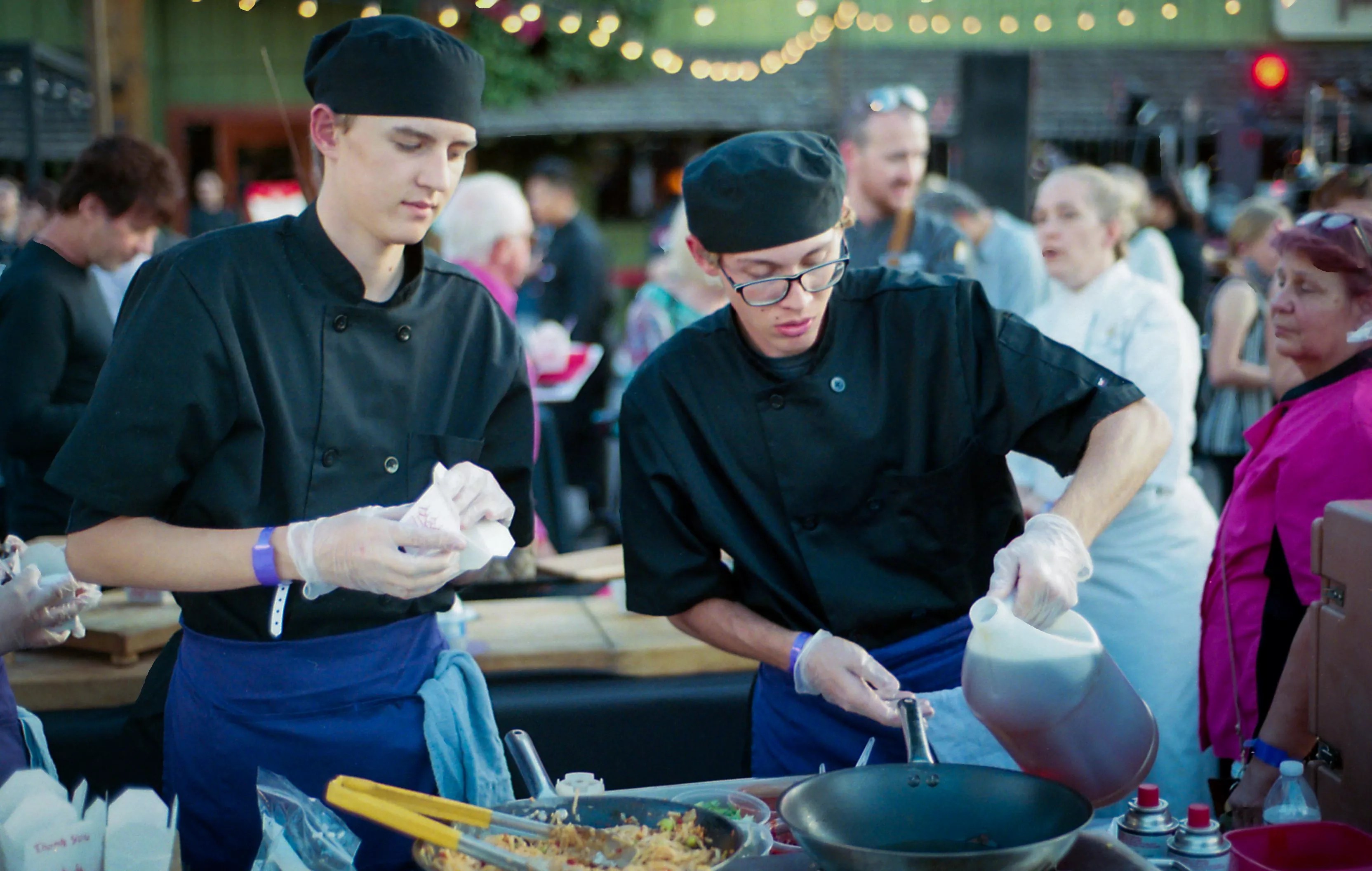
C-CAP started in 1990 and is now nationwide, including in 22 schools throughout Arizona.
Scott Foust
This year, chef and restaurateur Mark Tarbell is hosting C-CAP’s biggest fundraiser of the year, the eighth annual Harvest Moon Feast. The event will take place at Tarbell’s on October 9. Last year, it raised over $100,000. Tarbell, who is on the national board of C-CAP, has been involved with the organization since it began in Arizona.
“Over the years, I’ve grown to appreciate it more and more, as it has a very, very, very, very, direct and positive impact on these young kids,” he says.
Many students use C-CAP to propel themselves into careers in the culinary arts, but some of the cash scholarships can also be used for any type of college education.
“Young people can prove to themselves that they can do things and they go on to other careers outside of the culinary arts, which I think is fantastic,” Tarbell says.
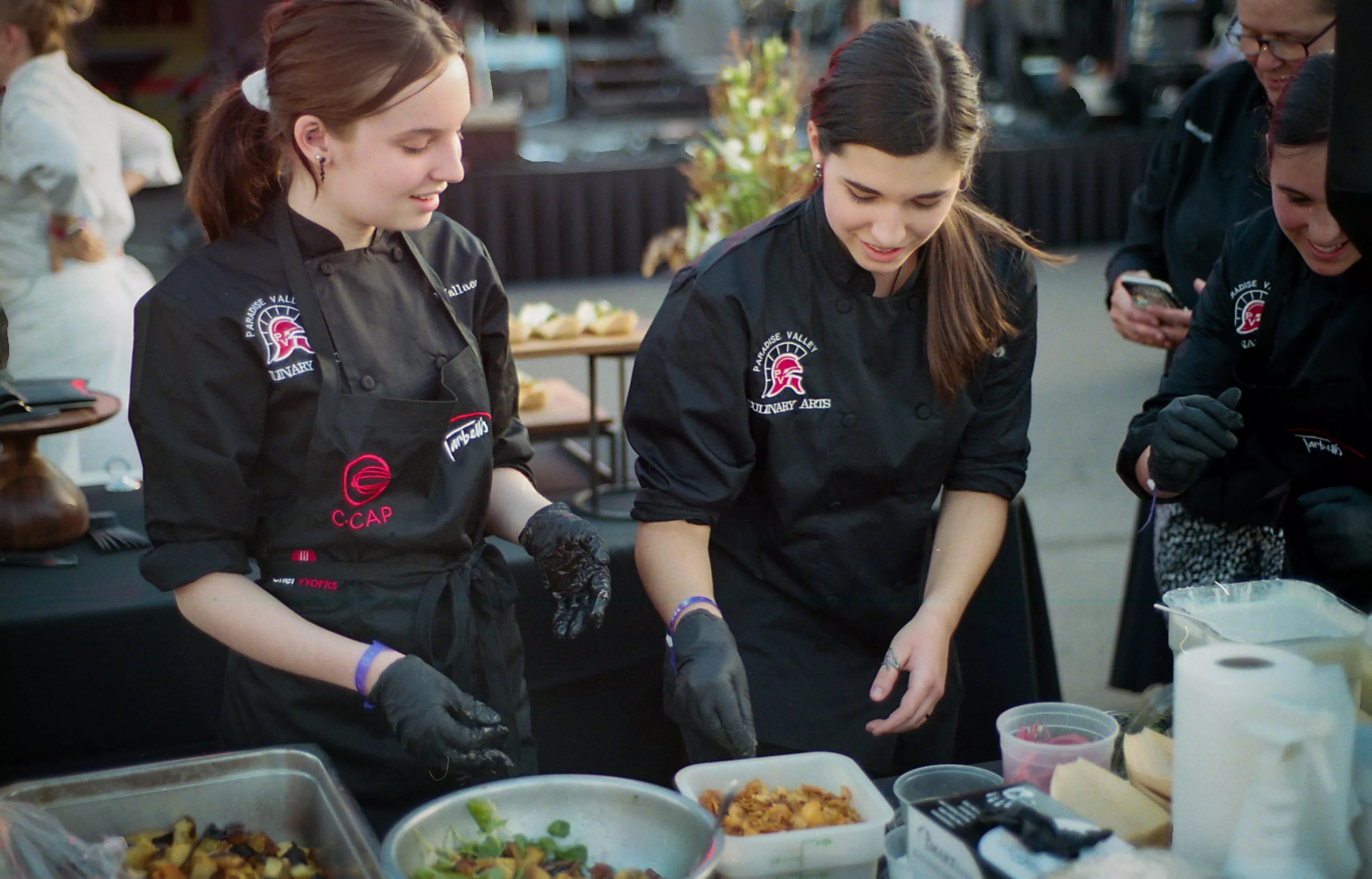
The Harvest Moon Feast once again will feature student culinary creations, wine, cocktails, and a live band.
Scott Foust
Previous competitor Bria Fogelson of Peoria set goals within the industry, and wants to own a seasonally-based bakery and cafe. She excelled in the competition requiring students to prepare a thinly sliced cucumber salad and French omelet.
“They graded off of flavor, presentation, the sanitation, how you run your own station, and how you were in the kitchen,” she says. “Everything was graded based on performance and how the end product turned out.”
Fogelson did so well, she earned a full scholarship through the C-CAP competition to attend the Culinary Institute of America starting in January.
Competitions also teach students to roll with the punches and not get discouraged, which is integral when working in the fast-paced, high-stress setting of a restaurant kitchen. Chef Kevin Barko, culinary coordinator and board member for Arizona C-CAP, and Amy Barko’s husband, said Esai Raya struggled in the second competition, but he didn’t give up.
“Some students stomp their feet and leave the room and cry,” Kevin says. “Esai didn’t do that. He didn’t even flinch… He continued.”
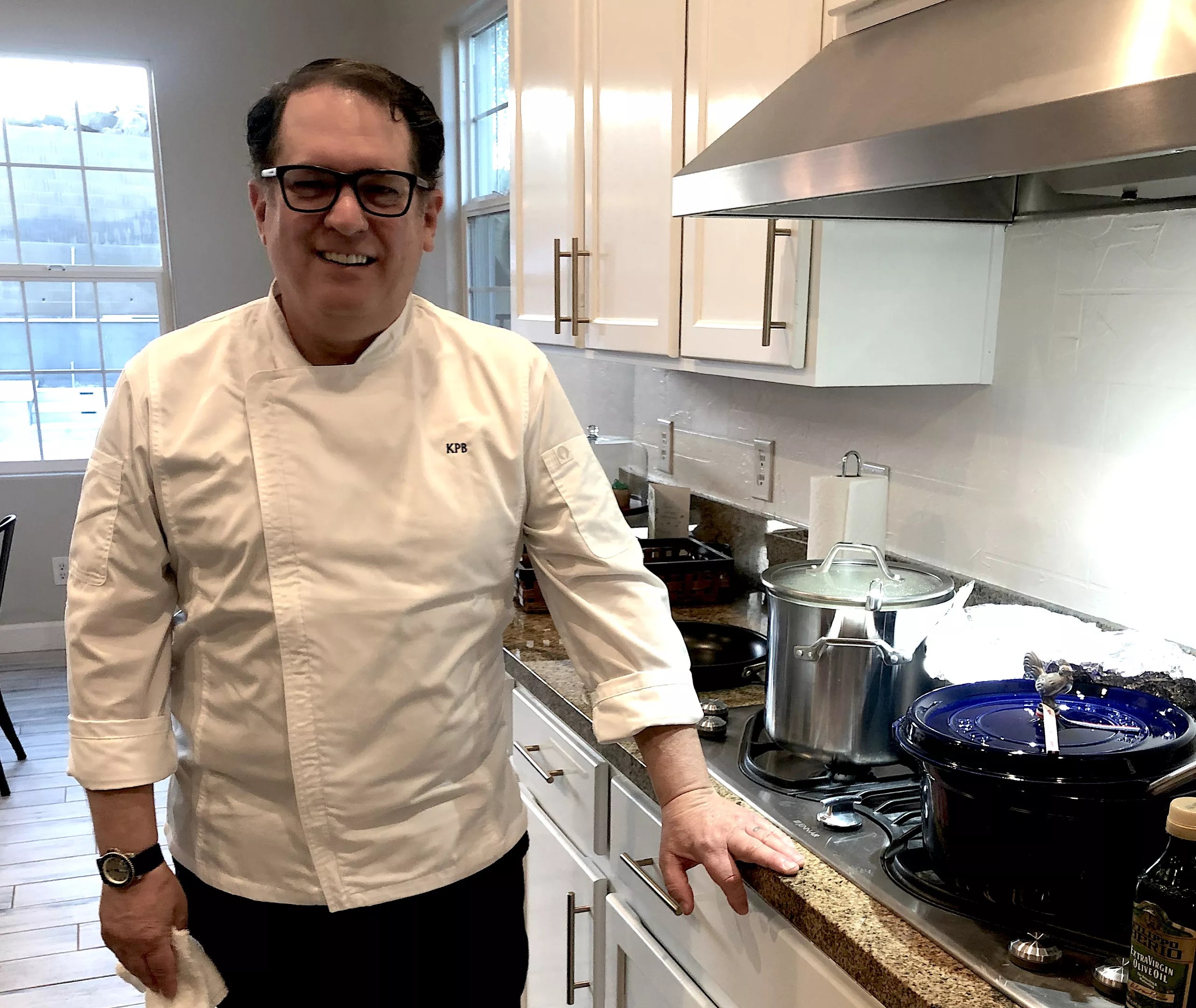
Chef Kevin Barko is the culinary coordinator for Arizona C-CAP and on the board of directors.
Kevin Barko
Another big advantage to C-CAP is that it connects students with positions at top resorts, hotels, and bakeries to earn while they learn, like the one Raya has with Casino Arizona. More students recently don’t seem interested in jumping right into college, Kevin notes. An apprenticeship or internship helps them figure out what they want to do while filling a gap in the labor market.
“Employers are in dire need of employees who have some clue about how to work around a kitchen,” Kevin says.
That can lead to much bigger opportunities, C-CAP graduate Peter McQuaid found out. He started working for chef Beau MacMillan on weekends in high school and now, at age 24, is the executive chef of Cala in Scottsdale.
“I did [C-CAP] for two years and competed in the competitions and got a really nice scholarship to the International Culinary Center in New York,” he says. “That was a dream come true for me.”
MacMillan says McQuaid handles the pressures of the job because of the strong foundation, mentorship, and skill set that C-CAP provided.
“Look at how far he’s come in the short space,” MacMillan says.
Like McQuaid, Raya has seen firsthand how essential C-CAP is in making connections.
“Being able to have this opportunity, working with chefs who have gone to culinary school and worked in this industry longer than I’ve been alive” has helped him work toward his goals, he said. “I wouldn’t have been able to do it had I not done C-CAP.”
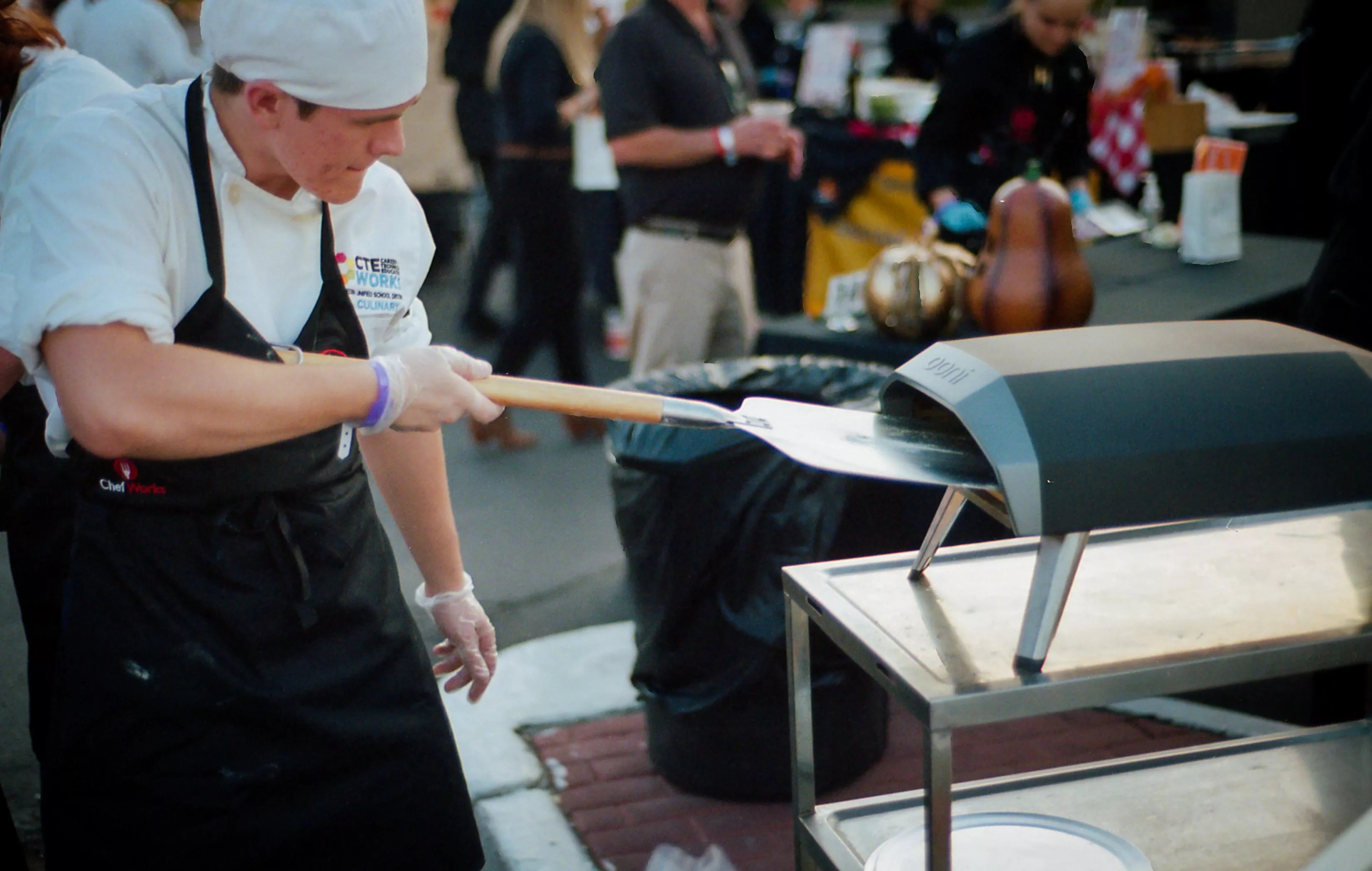
C-CAP competitions offer students the chance to earn anywhere from ,000 to a full tuition scholarship to top culinary schools.
Scott Foust
Tickets for the Harvest Moon Feast start at $125 and are available online. The night includes culinary creations by high school teams and their chef mentors, premium cocktails, wine, and live music by Nate Nathan and the MacDaddy-O’s, which features Tarbell on guitar.
Harvest Moon Feast at Tarbell’s
Sunday, October 9 from 5:30 to 9 p.m.
3213 East Camelback Road
ccapinc.org